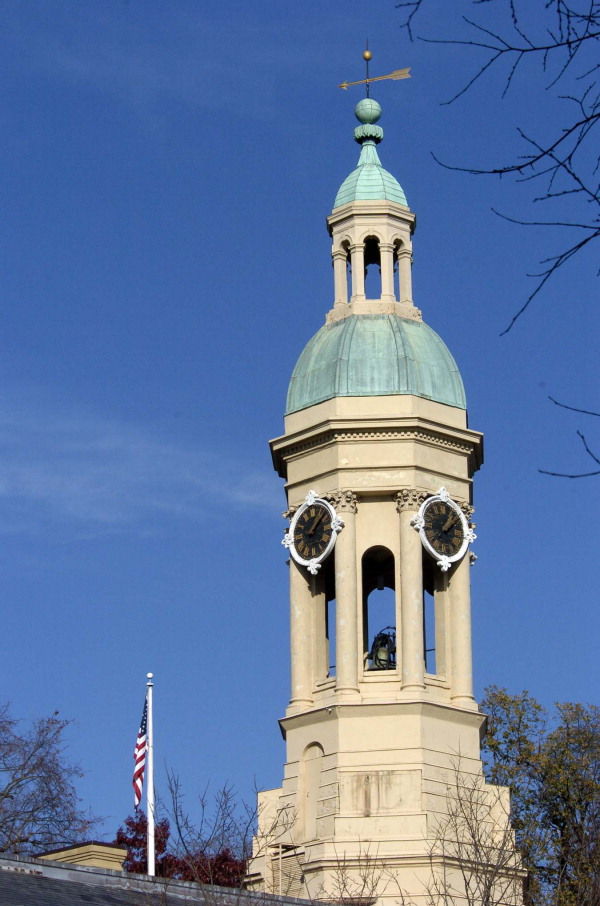By Philip Sean Curran, Staff Writer
Princeton University is sticking to a “limited” policy of providing guns to its department of public safety, the head of that agency told the Princeton Council on Monday.
Executive Director Paul L. Ominsky went before the governing body a week after the school said the 32 sworn police officers in its 97-member department would have access to rifles only in cases if there is an active shooter or someone brandishing a firearm on campus.
“This decision by the university is about enhancing our emergency response. It’s limited to emergency response for two specific situations, ” he said. “There is not a discussion about arming public safety.”
His comments came in response to a question from Councilwoman Jo S. Butler, who asked whether the school eventually planned to have the campus police fully armed. Those officers do not carry guns on the hips, but in those two types of emergencies, they will be able to get to rifles in their cars.
The decision comes even as he said the town and the campus are safe.
“We’re training and we’re preparing our staff for something we never want to see happen,” Mr. Ominsky said. “But we have to plan for the unthinkable.”
In either a report of an active shooter or someone brandishing a gun, the university public safety department would notify Princeton police immediately, he said.
“They will know right away. This is about a joint response,” he said. “We are not doing this alone. We’re doing this together.”
Princeton police Chief Nicholas K. Sutter, seated next to Mr. Ominsky, said he supported the school’s decision. He touched on how critical the response time is in a shooting emergency.
“What we’ve learned through national events, through our training and through our in-depth research that we’ve done together and individually is that in the these type of critical incidents, time can equal lives,” Chief Sutter said.
“The longer it takes … for police armed intervention, it could equate to a life,” he continued. “The quicker we get there, the quicker we intervene, the quicker we stop it, the more lives that can be saved.”
The sworn officers at the university have gone through the New Jersey Police Academy. Like other police, they will have to show proficiency with their weapons twice a year.
“There are strict guidelines and oversight with respect to police officers and firearms in general and specific to the type of firearm that we use and specific to the individual,” Chief Sutter said.
During the meeting, he was asked if the university police would respond to an emergency that occurs outside their jurisdiction in the broader community. He said that would come down to a mutual aid request his department would make if it needed help. Later in her remarks, Ms. Butler said some in the community might not feel safer knowing that campus police are armed.
“Not everyone feels safe around the police,” she said. “We’ve seen massacres, but we’ve also seen Tamir Rice, where a child was brandishing a toy and was shot.”
Tamir Rice was a 12-year-old black child shot last year by law enforcement in Cleveland.
Mayor Liz Lempert, who belongs to Mayors Against Illegal Guns, told reporters at her press conference earlier in the day that the school’s providing access to guns is a “response and reflection of where we are as a country that I find sad.”
“I think it’s a sad state in the world that we are now in this situation,” she said, “but I also understand that this is considered best practices, and that we do live in a different world than we used to.”

